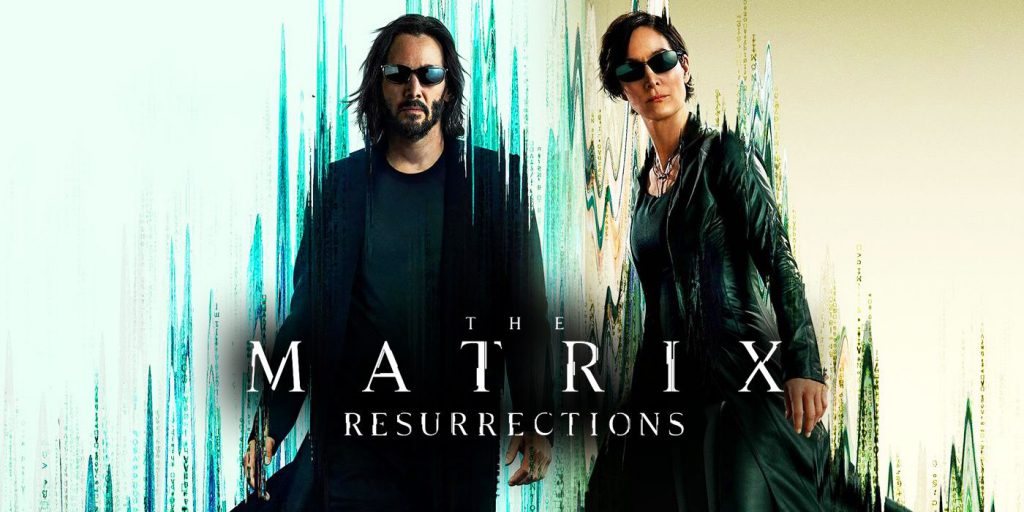Despite his responsibilities as The One, which included preserving humanity and bringing peace to the world, Neo’s focus was always on Trinity. At the end of The Matrix, her love for him brought him back from the edge of death (1999). In the final scene of Reloaded, he chooses her life above preserving the entire race (2003). She is the one who dedicated her life to assist him in fulfilling his destiny and bringing the Revolutionary War to a close (2003). It’s a thoughtful and reassuring concept. That The Matrix films are, at its core, all about love, despite their endlessly examined spectacle and mysticism, heady philosophy, and huge, good vs evil, man vs machine stakes.
The Matrix Resurrections, the fourth installment in what was meant to be a trilogy, expands on this love tale, seeking to subvert and make us doubt what we think we know about The One and his journey once more.It’s not about him anymore; it’s about them.
The familiar score and now-iconic streams of green code dribbling down the screen in the opening titles transport us back to the Matrix, where we meet an older, shakier, and more insecure Thomas Anderson (the inimitable Keanu Reeves reprising the role after 18 years). Thomas goes about his monotonous, lifeless life once more, knowing that something isn’t quite right about the world he lives in.
However, unlike the Thomas Anderson we met in The Matrix 22 years ago, this Thomas isn’t a hacker. He’s a well-known game designer who helped create the popular Matrix trilogy (here a series of games, not movies). Neo is still alive (no surprise there), and the machines have enslaved his mind once more.
This version of the Matrix, however, does not ignore his background; rather, it welcomes it in order to keep him popping blue pills and persuaded that this phony reality is genuine. He’s led to believe that his memories of becoming The One, Morpheus, and Trinity, The Oracle, The Architect, the battle of Zion, and Agent Smith were all made up. Memories that are little more than fables about a popular series of games he created, which his damaged, delusional mind has come to believe are true. Trinity (Carrie-Ann Moss), a soccer mom who goes by the name Tiffany, is also incarcerated in Thomas Anderson’s new virtual prison. She’s drawn to Thoman for unknown reasons, and she, like him, feels as if she’s living a life that isn’t her own.
This outrageously meta first act of filmmaker Lana Wachowski’s film—what I’m calling the MetaTrix—is by far the most intriguing and promising. Wachowski is one-half of the Wachowski brothers responsible for the legendary first three films. In public locations, young admirers approach Thomas to tell him how The Matrix series has altered their lives. “Warner Brothers have threatened to make a sequel to the trilogy,” his scary business buddy Smith (Mindhunter’s Jonathan Groff) informs him. Following that, we see boardrooms full of people and marketing nerds (including a lovely appearance from our very own Purab Kohli) debating the popularity of the Matrix series and where to take this new sequel. Someone says, “The Matrix is mind porn.” Another insists that it is a political and religious issue. “This can’t be just another reboot,” one person says, while another adds, “all you need is more bullet time…something to keep the kids entertained.”
In the end, Resurrections serves as a meta-examination of The Matrix films’ impact rather than a satisfactory, and more crucially, required sequel. One that is so intent on winking at us that it threatens to give us a headache. It feels like Deja Vu at its best, a malfunction in the Matrix’s history.
